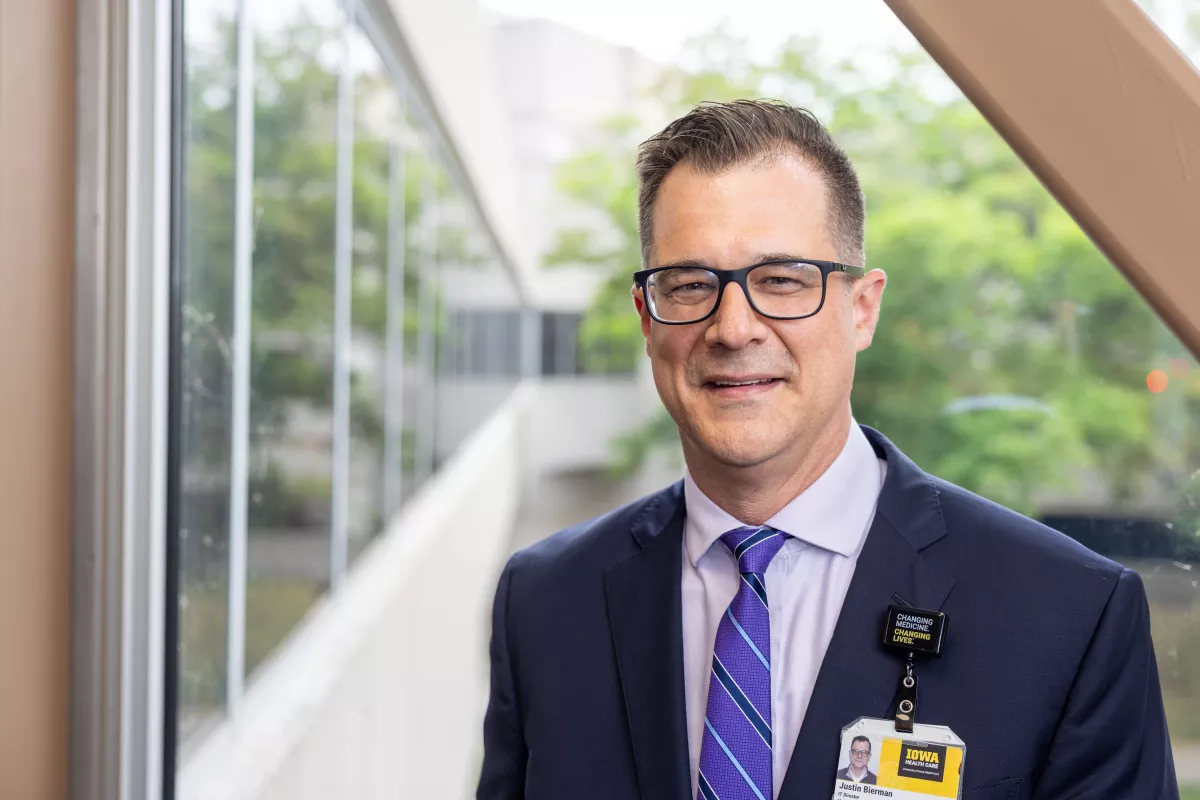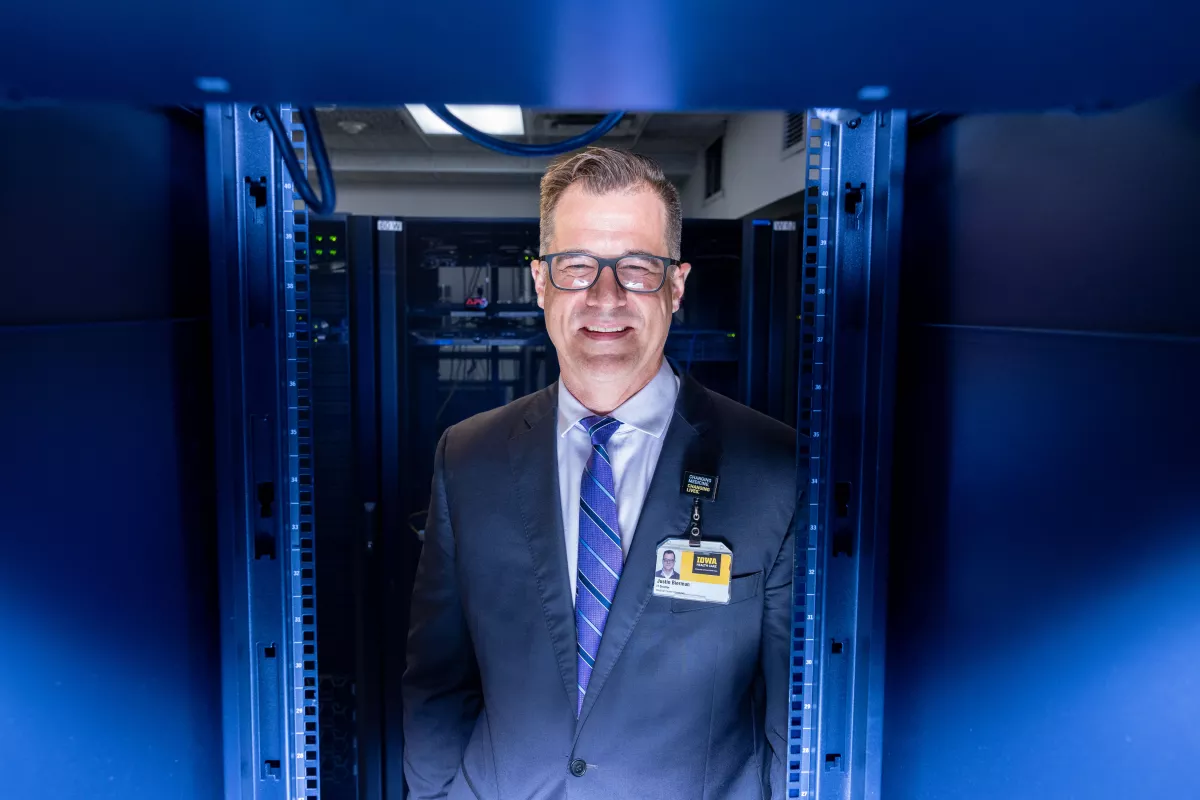Bierman shares more about his background and role in the interview below.
Get to know Justin Bierman
Sep 18, 2024
by
UI Health Care

Justin Bierman
In his role as IT director of the downtown campus, Justin Bierman and his team have played an important role in the launch of Epic and integrating IT systems into the university.
Would you please talk a little about your history, how you began working at Mercy Iowa City (now the downtown campus), and your role?
I am in my 24th year in information technology (IT), and the past nine of those have been at Mercy Iowa City, now known as University of Iowa Health Care Medical Center Downtown. I have seen a lot of change over those years in the IT and digital world, especially when it comes to health care and how we use technology to enable patient care.
Before joining Mercy, I worked for a software company in Iowa City. A friend recruited me to come to Mercy to lead IT for the clinic system. Eventually, I took a role in informatics and did that for three years before taking on more responsibilities. In December 2022, I was asked to lead IT as the former chief information officer (CIO) was leaving the organization.
Some of what I have been doing recently is working with the former electronic health records (EHR) vendor to migrate equipment to the university and wind down their work now that Epic is live.
The launch of Epic at the downtown campus was a huge endeavor. Can you talk more about that experience, and its impact on the organization?
I have been impressed with my new teammates and colleagues in UI Health Care Information Systems (HCIS). They are a group that really pulls together to get things done. The amount of time the team had to implement and launch Epic is almost unheard of in the industry. When we were still Mercy Iowa City, our prior implementation with the former vendor took about 12 months and didn’t go nearly as well. So, there was some apprehension from our team about how realistic it would be to launch just a few short months after the transition.
And while I understand that apprehension, the reality was that the team had a goal and a deadline, and they did everything in their power to meet them both. The university deployed a ton of resources and took a thoughtful approach to understanding the impacts. We had many meetings to discuss every single piece of the implementation, trying to identify any potential issues or roadblocks and remove them. In some ways, this was more of a change management project than it was an IT project. I wasn’t as involved and hands-on in the implementation, but I played a role in securing any data that was needed.
The university also brought in teams of Epic contract resources to ensure the expertise was available and on-site, and the university’s Epic team is fantastic. They moved heaven and earth to make the launch happen on May 4, and did so with few issues to resolve.
But beyond the technical aspects of launching Epic, there is a whole component of training people on how to use the workflows. The team that came downtown from the university to help in real time was wonderful. I really could not have been more impressed with how it all went.
I cannot say enough about the excellent work of this team; I look forward to working with them.

What kinds of data or trends are you already seeing from Epic?
One data point I found interesting as we worked on the data migration is that 80% of our existing patients from the downtown campus already existed in the university’s Epic system. This is a proof point for why moving to Epic was so critical for continuity of care and getting that complete picture across the system. And then expand that out and think about clinics in other communities and providers being able to get the full picture, it’s really powerful when you think of what it enables from a care perspective.
Would you share any observations you’ve made so far, or any wins you can share related to the integration?
What is exciting to me from an IT perspective is the size and scope of UI Health Care’s HCIS team. The resources available to help troubleshoot or drive projects are incredible. As a much smaller organization, in the past we relied more on outsourced or contracted resources. I am looking forward to being a part of this much larger team.
What does your life outside of work look like?
My wife and I celebrated our 24th anniversary this summer. We have two kids, a sophomore at the University of Iowa, and a junior at Cedar Rapids Jefferson High School. We also have two beagles, Maisy and Midge. Between the kids and the dogs, they keep us busy.
I’ve been commuting from Cedar Rapids to Iowa City for 25 years, and I spend that time listening to music or podcasts, and occasionally taking a work call or two. On the way home, I’ve found it a nice way to reflect on the day and decompress a bit before I walk in the house!